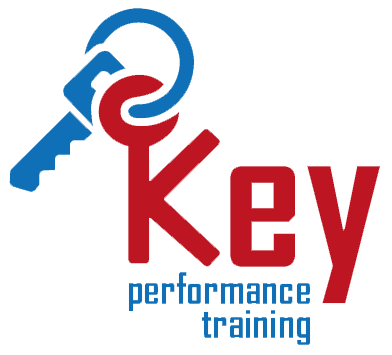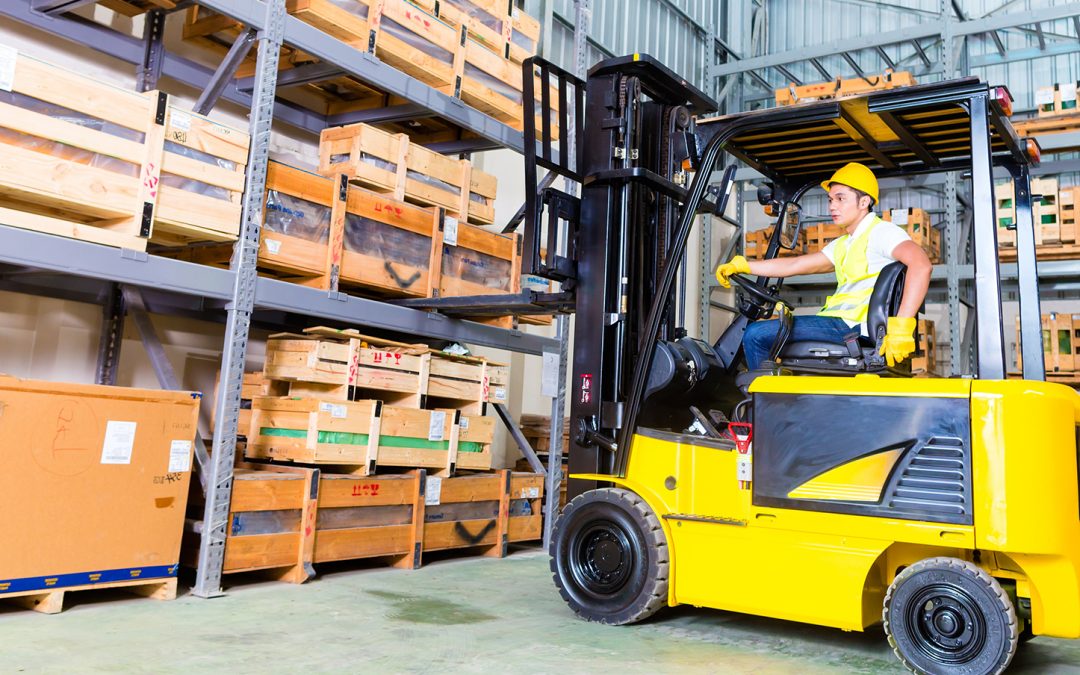
by Rachel Gearon | May 5, 2022 | Employment & skills, Industry news, Training courses
Accidents involving materials handling equipment (MHE) are largely avoidable, yet still far too widespread in supply chain operations. With reach trucks one of the most common types of lifting equipment in use, the RTITB have recently launched the RTITB Reach Truck Operator’s Safety Code to help in house operations and training providers provide clear guidance on how to operate safely.
Below are ten of the simplest ways to help improve safety for Reach Truck Operators, and those around them:
- Never operate a truck you’re not qualified to – Operators should never be asked to operate a reach truck on which they have not been trained and authorised. This includes using a reach truck category that they are not specifically qualified for. Safe operation guidelines will vary for different types of reach trucks, so it cannot be assumed that competence on one type will ensure safety when using another.
- Use the correct truck for the application – One reason that there are so many distinct types of material handling equipment available is that some machines are better suited to certain tasks than others. Employers and operators should ensure that where a reach truck is being used, that it is the correct type for the environment and situation where it is working.
- Be ‘fit’ to operate the truck safely – It should be obvious that operators should never use a reach truck if they are under the influence of alcohol or drugs. However, this also includes strong medicines that may cause drowsiness. Operators that are unwell or overtired should avoid operating this type of equipment to ensure safety.
- Prioritise awareness – Awareness of the working environment is always the first line of defence against incidents. Operators should be trained to always pay close attention to what is going on around them. Phones or handheld devices should not be operated when an operator is in control of a reach truck. And operators that need to wear glasses should always remember to do so when operating the equipment.
- Know the signs – Operations differ in terms of traffic flows so operators should not only be aware of the site-specific rules, but should also maintain an awareness of safety signs, traffic lights, signals, and speed limits. Where there are none, operators should make use of hand signals, safety lights, audible warning devices and verbal communication to make their intentions clear to those around them to support safety.
- Remember – the forks are sacred! – The forks of a reach truck are only there to do the tasks they have been specifically designed for. It is extremely dangerous to let passengers ride on the reach truck or the forks. Operators should never lift anyone on the forks, on any attachment, or on the pallet, or allow anyone to mount these. Likewise, no-one should ever stand or walk under raised fork arms, even if the truck is unladen.
- Be aware of pedestrians – Pedestrians are highly vulnerable in workplace transport operations and are too often involved in incidents involving materials handling equipment. So, if there may be pedestrians in the area, reach truck operators must always drive slowly, carefully, and responsibly, even if they cannot see other people in the vicinity. Operators should keep an eye out for pedestrians appearing from blind spots, such as doorways or parked vehicles, and be prepared to make an emergency stop if needed.
- Be transparent about incidents – It is important for businesses to create a culture where incidents and near misses are reported openly. Even if no damage or injury resulted, it is vital to know about these events to take action to reduce future risk. If there is an incident, operators should be trained how to check that their truck is undamaged and functional before attempting to return to work, and to know what the procedure is should they identify and faults or damage.
- Take a break! The supply chain is under huge pressure now, with many staff working long hours. However, sitting and operating a reach truck from the same position for extended periods can lead to musculoskeletal problems and injuries. Ensure that operators take regular breaks and are encouraged to stretch and move around wherever possible. Otherwise, eventually, musculoskeletal disorders can equate to many lost working days in the operation.
- Make safety guidelines available – Good, professional practice is key to preventing incidents in the workplace, so it is helpful for operators to have easy access to clear safety guidance whenever they need it. The new RTITB Reach Truck Operator’s Safety Code is a convenient booklet and reference tool that enables reach truck operators to check in and refresh their skills and knowledge regularly and helps them make sound judgments in the common situations they encounter in the workplace.
Coming soon…. Three Time-saving Tips for Reach Truck Operator Training
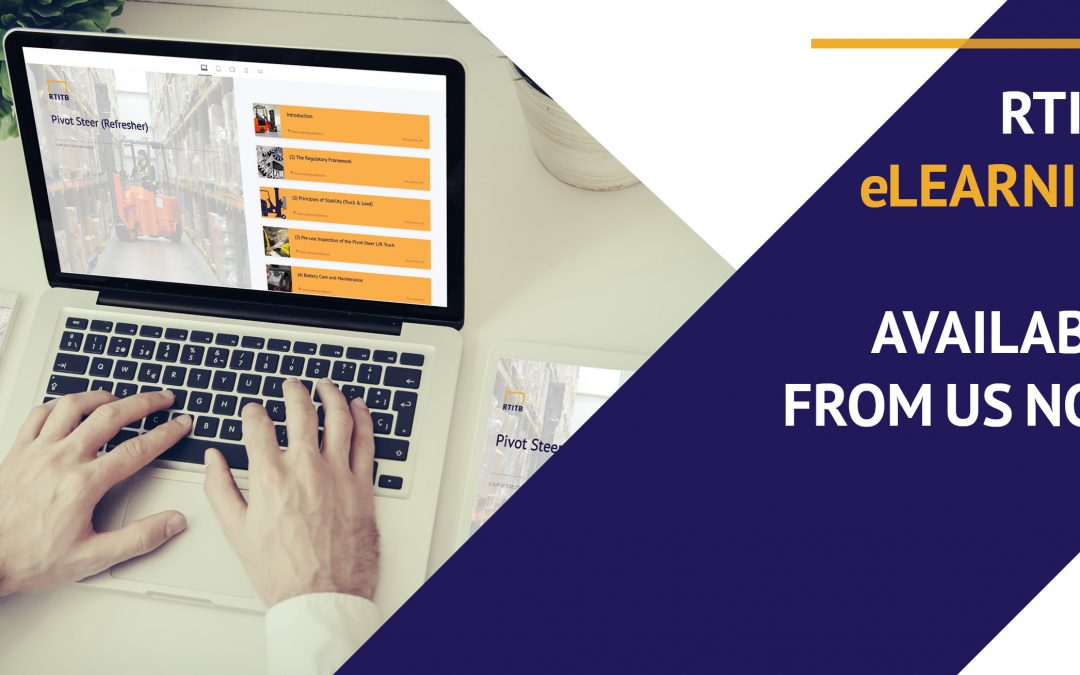
by Rachel Gearon | Apr 28, 2022 | Employment & skills, RTITB, Training courses
Key Performance Training is pleased to offer eLearning, enabling you to move the theory part of a course from the classroom to online.
Whether you’re looking to become a forklift operator, keen to refresh your skills, or you’re a company looking to upskill your current workforce, RTITB’s eLearning material is designed with operators in mind.
The eLearning is self-paced, so you can gain access to training materials to complete as and when you want, taking as long as you need, then complete in-person practical training at a later date.
Here are just some of the benefits of using RTITB eLearning and completing a course with us:
• Operators are kept engaged at all times, with interactive quizzes and videos
• Access the eLearning material anywhere, and at a time that suits you, on a number of devices, including mobile, table and PC
• Reduce practical training time (for example for a novice Counterbalance course a 5-day course could be reduced to 3 days)
• Operators are out of the business for a shorter time, minimising costs, and downtime
• Revisit the eLearning at any time to refresh knowledge
• Save time and money on travel to training courses (and in some cases hotels)
To get started with RTITB eLearning and learn more about our course offering, availability, and pricing, please give us a call on 01793 975353 and we’ll be delighted to discuss this with you.
Coming soon….10 Ways to Improve Reach Truck Safety
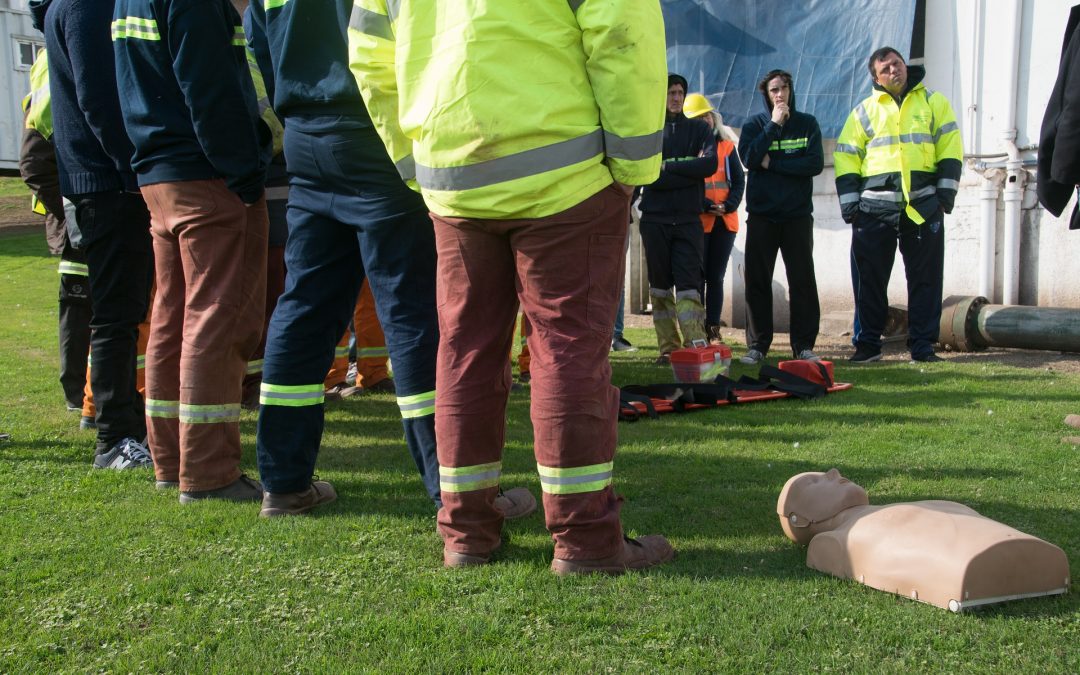
by Bob Hayward | Apr 22, 2022 | Employment & skills, Our News, Training courses
Our friendly trainers ensure that you receive the best value, most up to date, regulated and quality assured First Aid training available. The courses that we deliver are designed to be informative, fun and engaging. Our aim is to create an optimum learning environment, with our First Aid training courses being run in-house, at your workplace, or at a location to suit you.
Regulated by Ofqual, under their Regulated Quality Framework (RQF), accredited by the FAA and FutureQuals – our courses provide accountable, quality assured, practical knowledge, backed-up by real-world experience from our trainers. All courses meet HSE guidelines All our trainers are Disclosure & Barring Service (DBS) checked and we are more than happy to supply copies of their certificates prior to your course commencing.
HSE recommended
Our First Aid curriculums are updated regularly and our trainers undergo Continuous Professional Development (CPD), so you can be confident that all our courses will keep your staff up to date with best practices, as well as the latest guidelines from the Health and Safety Executive. If you need something more bespoke, our courses can also be tailored to meet your specific requirements, with Skillbuilder Courses added to the package, to maximise the value of your training.
Get the most out of your training
Our Skillbuilder Courses are specialist courses, designed to maximise your First Aid skill-set with specific training. They can be taken individually, or as a suite, to build on existing skills. They can also be included as part of a training package, when other courses are booked, to add real value and cost-effectiveness to your training.
Guaranteeing the quality of your training
All our trainers are qualified Internal Quality Assurance (IQA) Assessors, meeting the First Aid Awarding Organisation Forum’s Assessment Principles for First Aid. These Assessment Principles are the minimum requirements that are expected of regulated training providers in the UK.
Costs you will like
With prices starting at £28/person, we package the best training into the most cost-effective solution for you, giving you the best solution for your budget. All courses are for a class size of up to 12 delegates and we currently offer a 10% discount for all courses booked 2 months or more in advance.
Find out more – Call 01793 975 353
Workplace Courses – In-house, or at a location to suit you
- First Aid at Work
- Emergency First Aid At Work
- Outdoor + DofE Courses – Training for the outdoors and expeditions
- Outdoor First Aid
- DofE Expedition First Aid
- Paediatric Courses – Training for schools, groups and nurseries
- Paediatric First Aid
- Emergency Paediatric First Aid
- Refresher + Re-qual Courses – Keep your knowledge and skills up to date
- First Aid Refresher Training
- First Aid at Work Requalification
- Skillbuilder Courses – Maximise the value of your training
- Management of Anaphylaxis
- CPR + AED (Defibrillation)
- Catastrophic Bleeds
- Oxygen Therapy Administration
The syllabi for these courses are as recommended by the Health and Safety Executive (HSE) and are fully compliant with The Health and Safety (First-Aid) Regulations 1981. We use the latest training aids to deliver the best quality training to you
Course Location and Duration
These courses can be run in-house, or at a location of your choice for up to 12 delegates. The HSE require various contact hours for these courses, which can be delivered back-to-back, or broken down into individual days/evenings to suit you – as part of a training package, or as standalone courses. Delegates must attend all sessions to be eligible for assessment, which is done by continuous observation and questioning during the course.
Who Should Attend?
All those who wish to develop their First Aider skill-set and are easily accessible to other employees in the workplace, school or group.
Qualifications
All courses provide recognised, certificated awards and are regulated by Ofqual under their Regulated Quality Framework (RQF) and accredited by the FAA.
Find out more – Call 01793 975 353
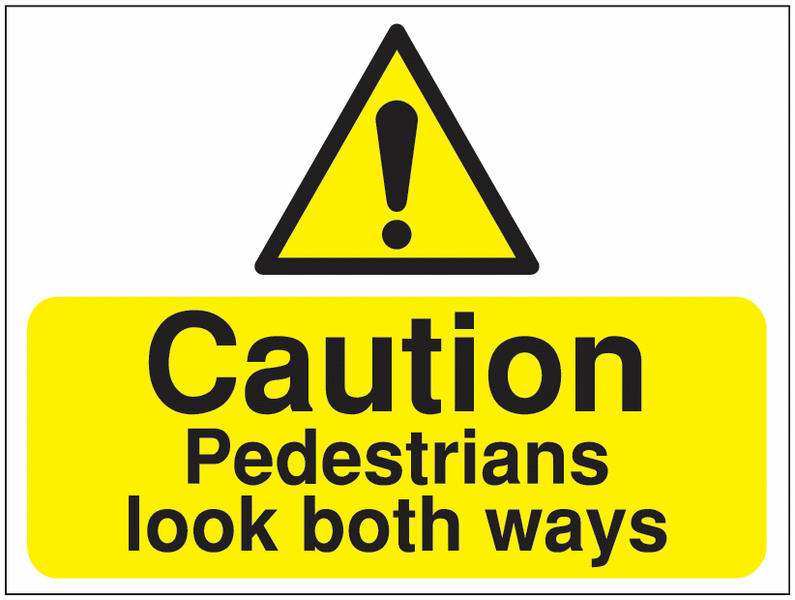
by Rachel Gearon | Apr 6, 2022 | Employment & skills, Industry news, RTITB, Training courses
We all know that safety guidelines are put in place for us all to adhere to, but putting this into practice can often feel like a chore in an already never-ending to do list. Incredibly, around 75% of critical incidents involve pedestrians who were completing tasks unrelated to the operation that was being carried out at the time of the incident. Adopting a culture of strict safety discipline in the warehouse could save more than just one life.
Many incidents involve pedestrians suffering crush injuries while trying to steady the load, or get involved in the loading or unloading of the forklift. These types of accidents and injuries are avoidable because the pedestrian should never need to be in the path of the forklift. There are many ways that this can be implemented in and around the warehouse:
- Designation
With designated operation areas, walkways, and clear signage in the warehouse you can remove any doubt or uncertainty. Consistent, clear instructions and directions that leave no room for ambiguity are essential. Of course, there are some grey areas that can’t be easily segregated, but in these areas safe working boundaries need to be communicated and upheld at all times. Establish safe operating distances and provide staff with guidance around forklift operation, and the loading and unloading of materials.
The most efficient warehouses make use of timetables to rotate staff to different locations, depending on the tasks they need to complete that day. This is to ensure pedestrian tasks aren’t being carried out alongside forklift tasks. Another useful addition to the warehouse is a traffic management system, such as one-way systems to reduce the risk of collisions.
Strong communication systems allow all members of staff to share the responsibility for keeping everybody safe. For example, co-workers need to be able to quickly and efficiently alert one another when an individual is in their workspace, or if somebody notices a truck losing its load during operation, or a driver leaving an unsafe distance between the truck and the pedestrian.
All of this and more is covered on our Forklift Training Course. Get in touch today to find out more.
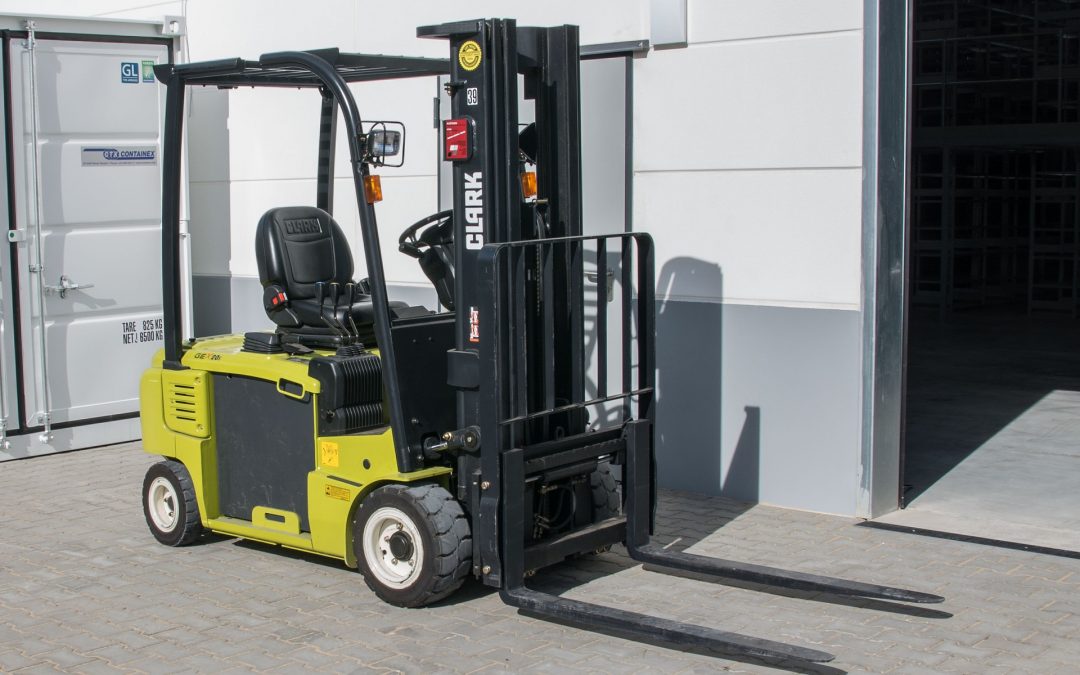
by Bob Hayward | Mar 17, 2022 | Employment & skills, Industry news, RTITB, Training courses
It is reported that overall accident rates are lower in workplaces where the wider workforce participates in health and safety and employees feel they have a say. The awareness of the risks of slips and trips, for example, is supposedly greater (62%) where the workforce is consulted on health and safety issues, than when there is no involvement (28%).
What employers with workplace transport operations can take from this, is that to reduce risk of incidents, it’s important for lift truck operators to understand their role in health and safety and feel they can actively contribute. In research, 77% of the workforce felt encouraged to raise concerns in a good health and safety climate to 20% who felt encouraged to do so in a poor health and safety climate.
Forklifts are one of the most commonplace types of equipment in logistics and warehouse operations, yet they are also among the most dangerous – it is suggested that 8,000 workplace incidents involving lift trucks are reported annually. With this in mind, your forklift operators may be some of the best positioned employees to understand workplace risks related to material handling and to take an active role in contributing to health and safety improvements.
So, what can employers do to help engage lift truck operators in health and safety more and positively influence their behaviour?
- Communicate the impact of incidents
Having a culture where incidents are never just an inevitable part of the job is key. Moreover, operators should have a clear awareness of the potential impacts of a lift truck incident occurring. At the most serious end of the spectrum, this can include life-changing and fatal injuries.
To tackle these subjects effectively, two-way communication is needed between trainers, health and safety managers and compliance managers, and their lift truck operators. What this looks like will be different depending on your organisation’s size and culture. However, a lift truck operator training environment is one good place to have these conversations, especially as regular training of operators is required for compliance.
For novice operators, the eTruck UK forklift and reach truck theory eLearning solution from RTITB helps support this, and encourage behaviour change around risk. Rather than a traditional presentation-led style of training, eTruck tells the story of a lift truck accident and the chain of events leading up to it. Operators must engage with the story to understand and anticipate when, why and where the accident will occur. This gives a greater understanding of safe operating practices and the impact of an incident on the wider operation.
- Educate on the role of Managers and Supervisors
It would be easy for operators to feel that should any incident occur, that it’s not entirely their fault, and it is true that their Managers and Supervisors have a significant role to play. Incidents often occur as a result of poor or non-existent supervision, so to reduce risks and comply with the law, those in these senior roles must be correctly trained, just as operators must be correctly trained.
However, operators must be made aware that they do have a level of accountability and therefore must always operate to the safety standards delivered via their lift truck operator training and follow the organisation’s rules and processes around health and safety.
- It all starts with training
Employers must remember that for compliance and safety, lift truck training should always be the first step. It is vital for not only educating operators on how to use and work around lift trucks, but also how to reduce risks to themselves and others.
There is a mandatory level of lift truck operator training required for compliance, and it is crucial to keep this up to date with refresher training or conversion training (if required). This is an essential for employed staff, as well as temporary and contract workers. For safety, only correctly trained staff should be given an Authorisation to Operate equipment.
However, businesses should always continue to undertake regular risk assessments and assessments of operators to ensure optimum safety practices and deliver remedial or additional training as and where needed.
RTITB Accreditation could support safety in your operation.

by Bob Hayward | Mar 11, 2022 | Employment & skills, RTITB, Training courses
After successfully completing your forklift truck training, you will understandably be eager to get out and put your new, hard-earned skills into practice. Forklift driving is a career path where you are constantly learning and acquiring new skills as you become more experienced. Obtaining your forklift licence is just the beginning of your journey. So how can you be a better forklift operator?
Never Skip Checks
Forklift trucks can be extremely dangerous machines to operate. Always check the forklift truck over before starting a shift, even if a driver has just been using it immediately before you. We all know the feeling of a manic Monday morning, but it is vital that you take the time to go through a safety checklist before operating a forklift, each and every time.
Be Disciplined About Distractions
It’s always the tips that sound so obvious that are the easiest to disregard. It seems clear to say that driver’s should avoid any and all distractions while on the truck, but being disciplined about distractions can be easier said than done. Maintaining focus at all times is paramount to forklift truck driving safety, both for you and for those around you.
Keep Yourself Warm
Driving in cold conditions dramatically reduces your reaction times, so it’s best to make sure you are dressed appropriately for both the weather and warehouse conditions. This is especially important if your work takes you outside. Layers that can be easily added to over the course of the day are an ideal solution, and could make all difference in the safety of your forklift operating.
Ask For Help
It can sometimes be difficult to ask for help, but in forklift truck driving, there are no stupid questions. Always communicate, always make sure, and always double check. It is better to ask and eliminate all doubt, and all safety risks along with it. This way, you are in total control of the safety of your workplace.

